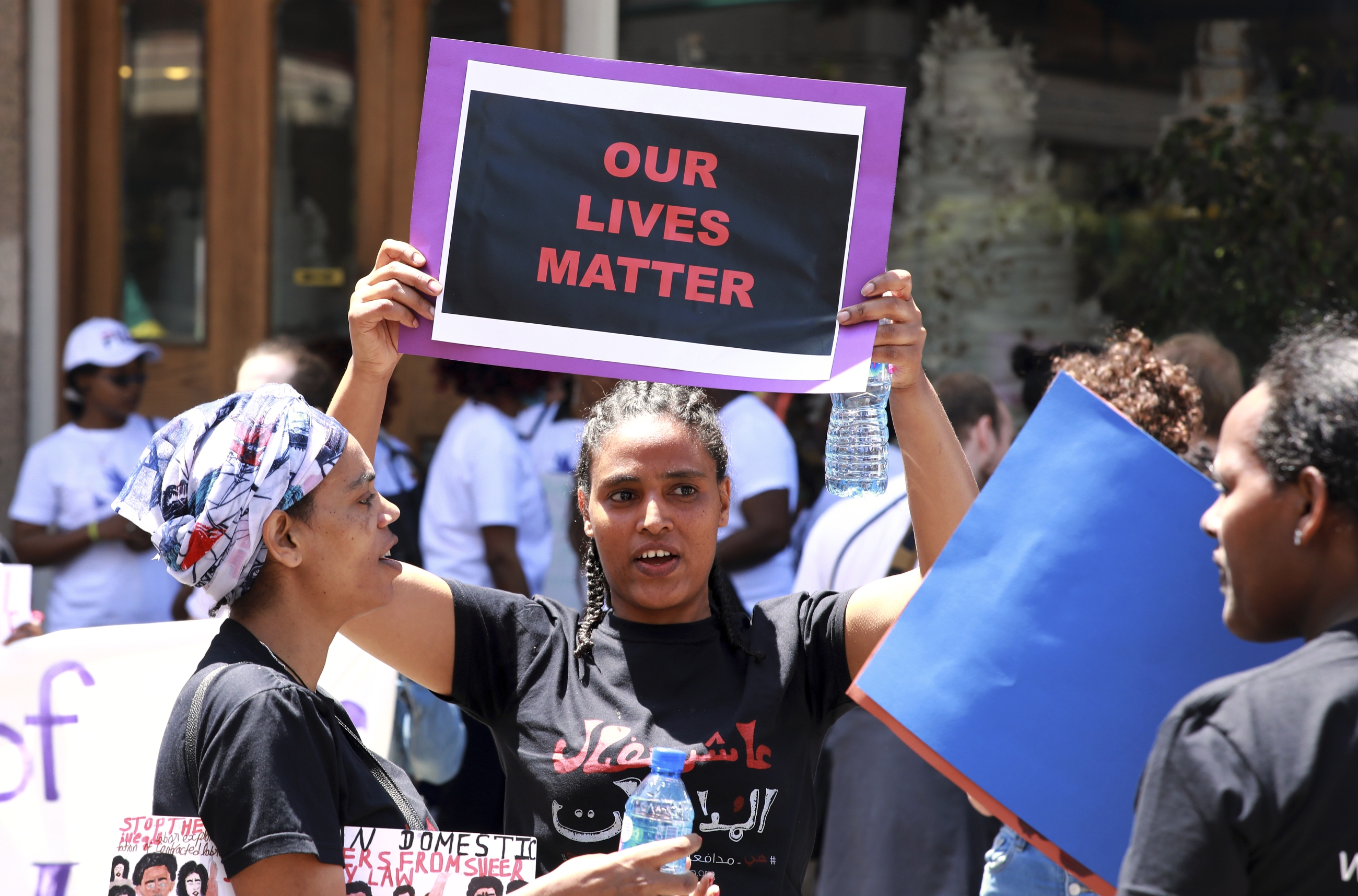
In pictures: Workers in Lebanon protest over Kafala system
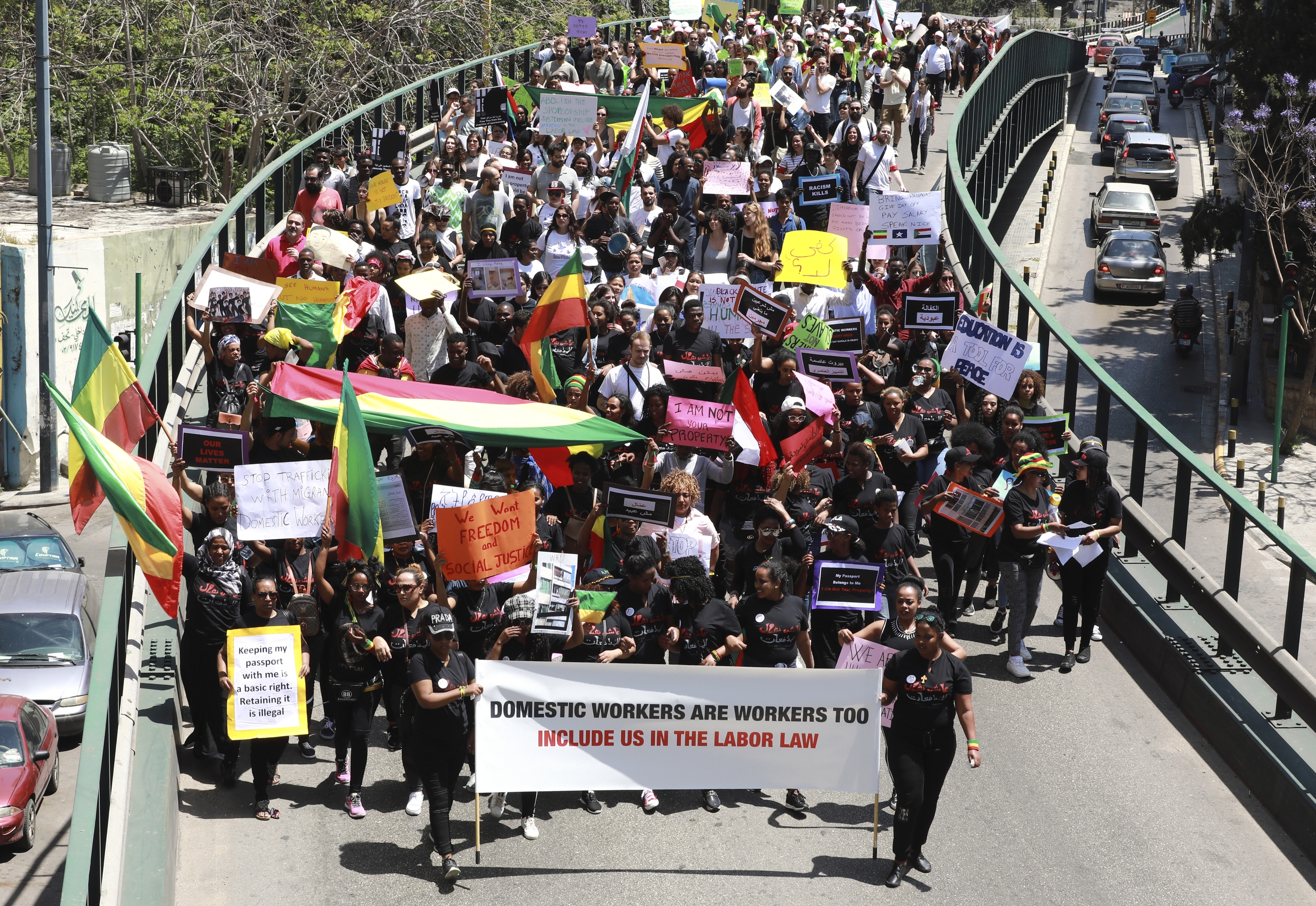
Hundreds of workers in Lebanon marched from Beirut’s Sodeco Square to a park in Aisha Bakkar on Sunday to demand an end to the Kafala system. Lebanon has previously come under scrutiny for the Kafala system, where the residency of foreign workers is tied to the sponsorship of their employer, often leaving them with no protection under Lebanese law. (AFP)
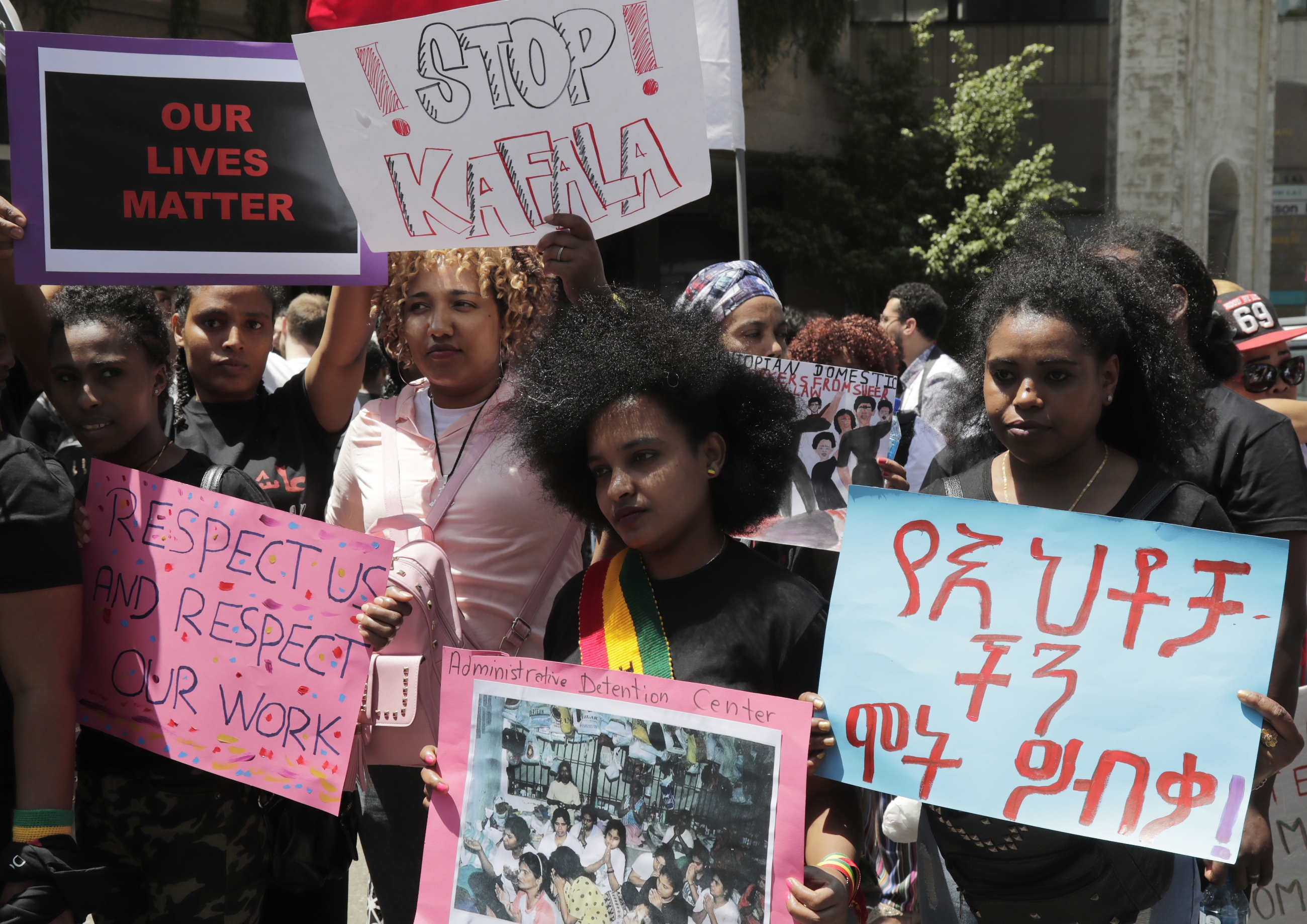
Lebanon has nearly 250,000 migrant domestic workers, the vast majority of them women. Earlier this year, rights group Amnesty International exposed a pattern of abuse faced by maids working and living inside Lebanon. The report found that under the Kafala system, workers can be subject to violations including physical and sexual abuse. (AFP)
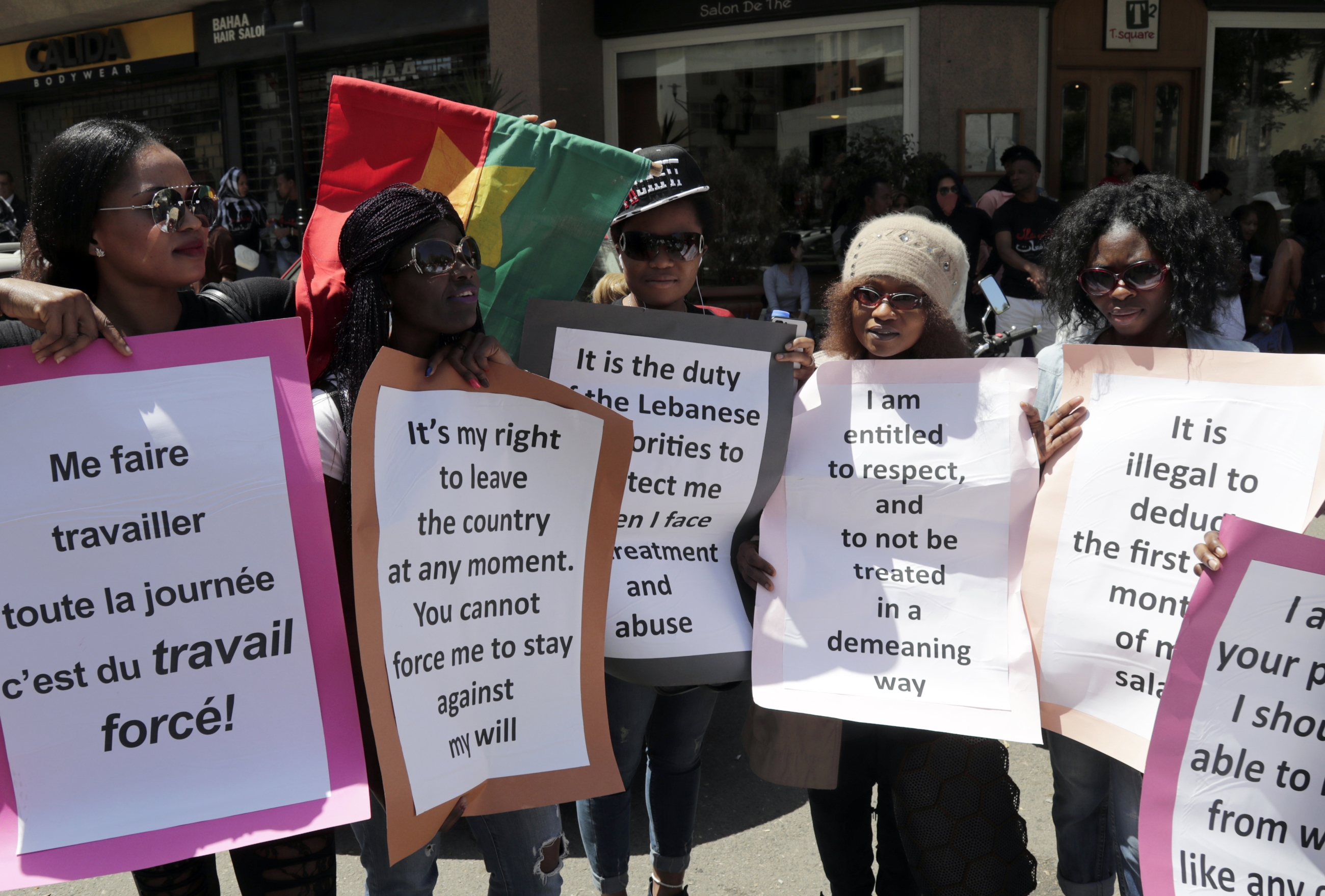
Amnesty International's Middle East and North Africa director criticised the Lebanese government for its failure to support migrant worker rights in the country and called on its labour ministry to act. "It is outrageous that successive Lebanese governments have turned a blind eye to the catalogue of abuses that migrant domestic workers are being subjected to in their place of employment," Morayef said in a statement. (AFP)
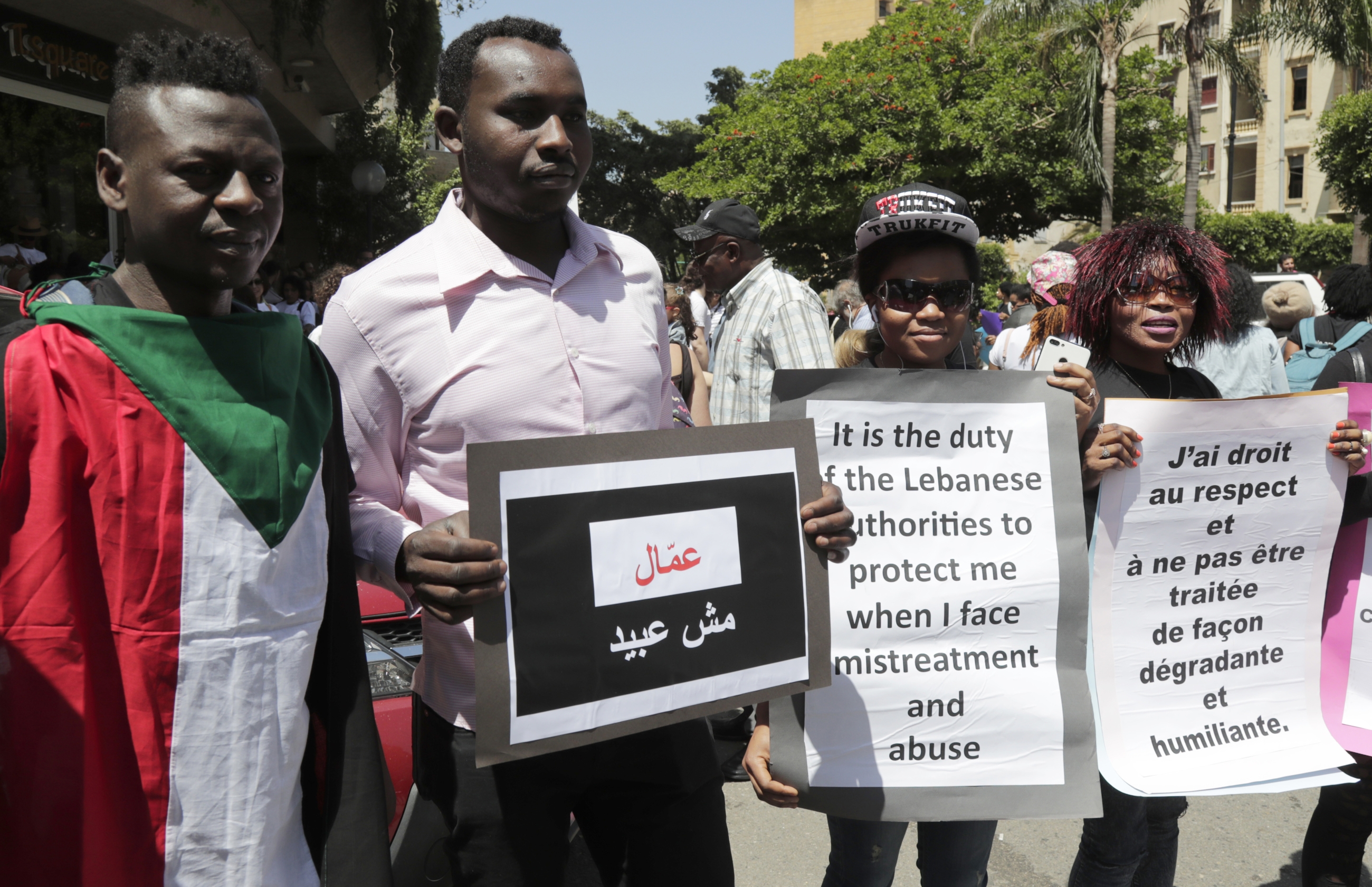
The workers come from African and Asian countries, primarily Bangladesh, Ethiopia, Kenya, the Philippines and Sri Lanka. Many of the workers who travel to Lebanon for employment using the kafala system come from deprived backgrounds and are often unaware of their rights. (AFP)

In 2008, Human Rights Watch found that migrant domestic workers in Lebanon were dying at a rate of more than one per week from suicide or in failed escapes. (AFP)
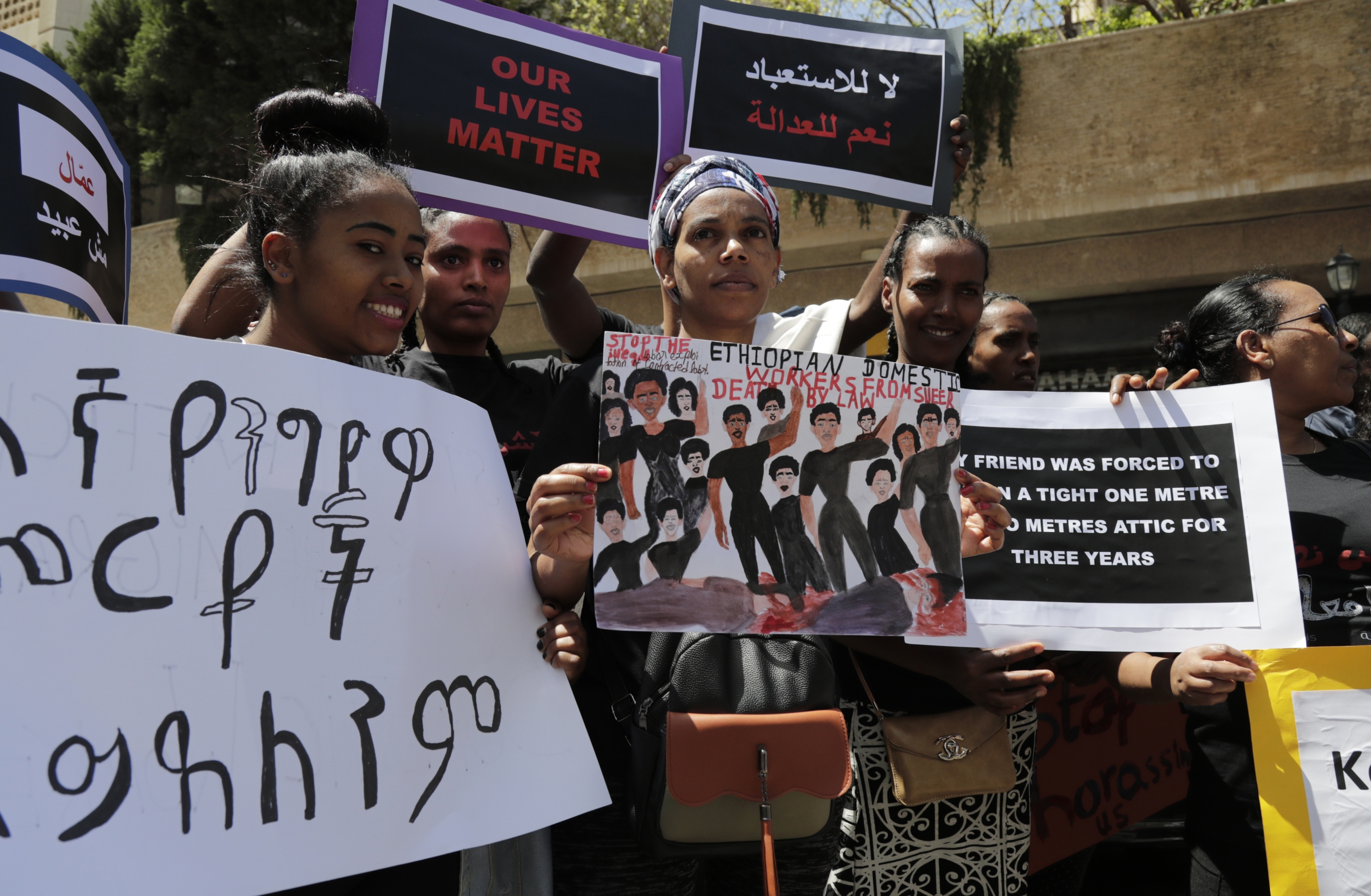
Under the Kafala system, workers can't travel, resign, change jobs or return home without the permission of the family who hired them. Activists accuse the Lebanese authorities of being lax in bringing abusive employers to account. Although Ethiopia and the Philippines have banned their citizens from domestic work in Lebanon, their citizens continue to seek employment there. (AFP)
Middle East Eye propose une couverture et une analyse indépendantes et incomparables du Moyen-Orient, de l’Afrique du Nord et d’autres régions du monde. Pour en savoir plus sur la reprise de ce contenu et les frais qui s’appliquent, veuillez remplir ce formulaire [en anglais]. Pour en savoir plus sur MEE, cliquez ici [en anglais].

